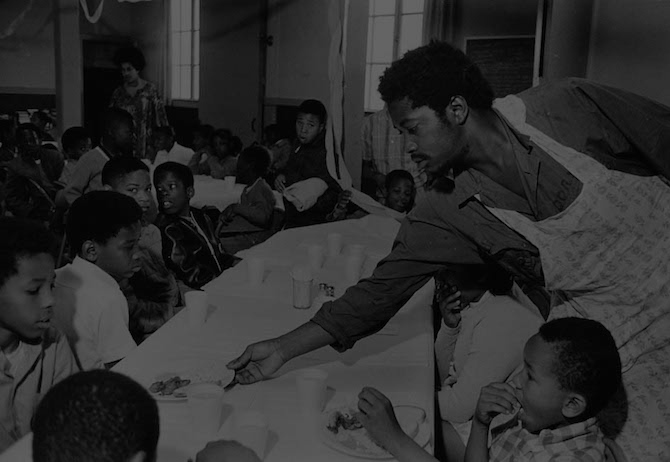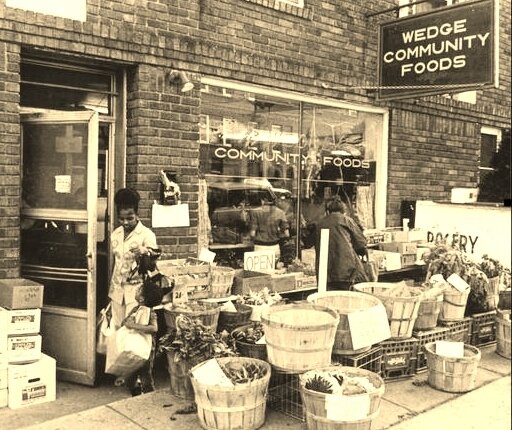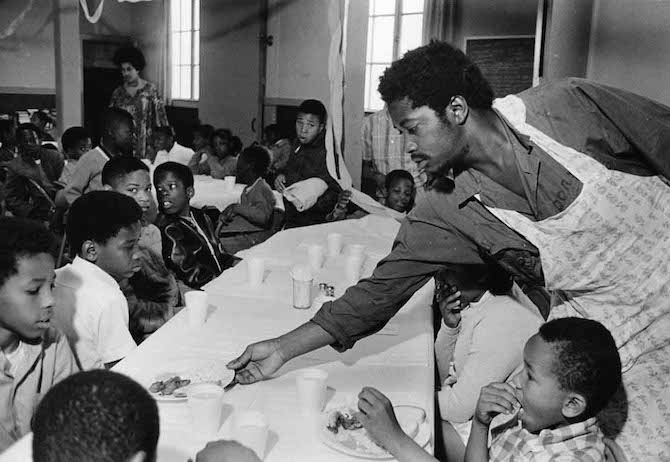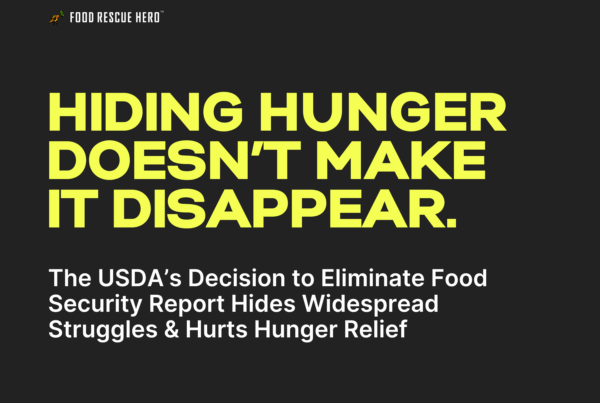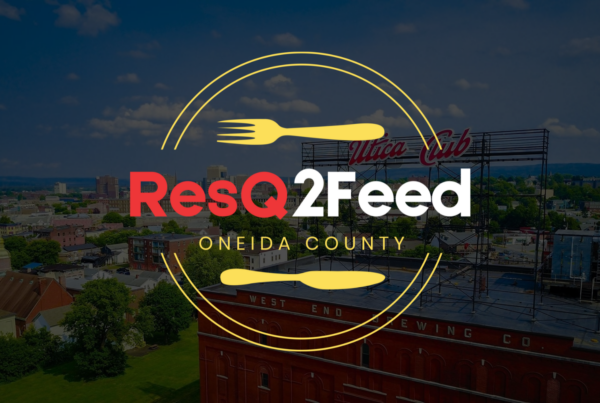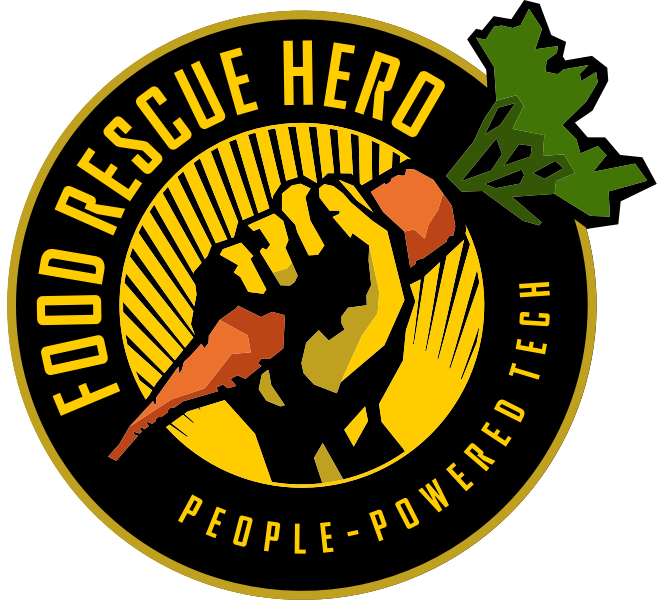In a perfect world, food wouldn’t need to be a tool of resistance and food insecurity wouldn’t be a tool of oppression. But historically food has been both.
Addressing food insecurity within marginalized communities is not a charitable act–it’s a foundational step in creating equity and promoting justice. For generations, the Black community has demonstrated resilience and empowerment through food initiatives, offering invaluable lessons in mutual aid and collective care.
History of Mutual Aid Led by Black Communities
The Black community’s fight for equality and dignity has always involved collective strategies, with food often at the center of mutual aid efforts.
During the period of enslavement, day-to-day acts of resistance, especially for women, often centered around food production and preparation. Feigning incompetence in food preparation became a common tactic: deliberately burning food, preparing meals slowly, or cooking poorly to frustrate enslavers. In some cases, food was even poisoned as a form of rebellion, making enslavers ill. Adherence to traditional cooking methods and ingredients, what we would call culturally appropriate food, also provided communities with an opportunity to retain their individual, familial and cultural identities, which in and of itself is a form of protest and empowerment.
During Reconstruction and the Jim Crow era, when systemic racism denied Black Americans access to adequate economic opportunities, education, and basic services, they created support systems rooted in cooperation and self-determination. Food sharing and communal kitchens became essential tools for survival.
Cooperative farming initiatives allowed Black farmers to pool land, labor, and equipment, helping sustain their families and communities despite exclusion from government agricultural programs.
Churches played a pivotal role, often serving as hubs for organizing food distribution.
Black mutual aid organizations and community groups, many of which dated to the eighteenth century, served as important support systems for the community. They provided everything from death benefits to hunger relief, fostering resilience in the face of exclusion from mainstream economic systems.
Urban gardens flourished in backyards and empty lots, providing fresh produce for families and strengthening community bonds.
Black women, in particular, played crucial roles in sustaining these mutual aid networks. They organized food drives, led community cooking efforts, and ensured that neighbors in need were cared for. Historical examples like Fannie Lou Hamer’s Freedom Farm Cooperative in the 1960s highlighted how these grassroots efforts not only alleviated hunger but also promoted economic empowerment and self-determination.
The Black Panther Party’s Free Breakfast for Children Program in the 1960s and 1970s recognized that hunger undermined a child’s ability to learn and thrive. The group served thousands of free meals to children daily, demonstrating the power of community-led solutions to systemic problems. This program–which would later inspire the federal government to implement breakfast for kids from families facing food insecurity–was of, by, and for the Black community. The Black Panthers were trailblazers in recognizing that community empowerment rests on education, and education rests on having basic needs met.
Food Rescue: A Community-Driven Solution
412 Food Rescue – Food Rescue Hero’s founding food rescue organization – honors and embraces these lessons from Black-led food justice movements, recognizing that mutual aid and community-driven solutions are essential to achieving food security and equity. With ten years of service to the Greater Pittsburgh community, 412 Food Rescue continues its mission to expand food access and nutrition security to Western Pennsylvania neighborhoods identified as highest need based on local levels of food insecurity and food deserts.
Through ongoing partnerships and conversations with the communities it serves, 412 Food Rescue ensures that its efforts reflect the needs and priorities of those most impacted by food insecurity.
The Housing Authority of the City of Pittsburgh, whose primary residents were reported in 2019 to be 90% minorities, saw a dramatic shift in food access after working with 412 Food Rescue. Within the first year of the partnership, housing staff reported that calls from residents asking for food assistance dropped from dozens per week to zero.
“By working with 412 Food Rescue, we’ve already eliminated the need for emergency food assistance in our communities.”
– Michelle Sandidge, Chief Community Affairs Officer at the HACP
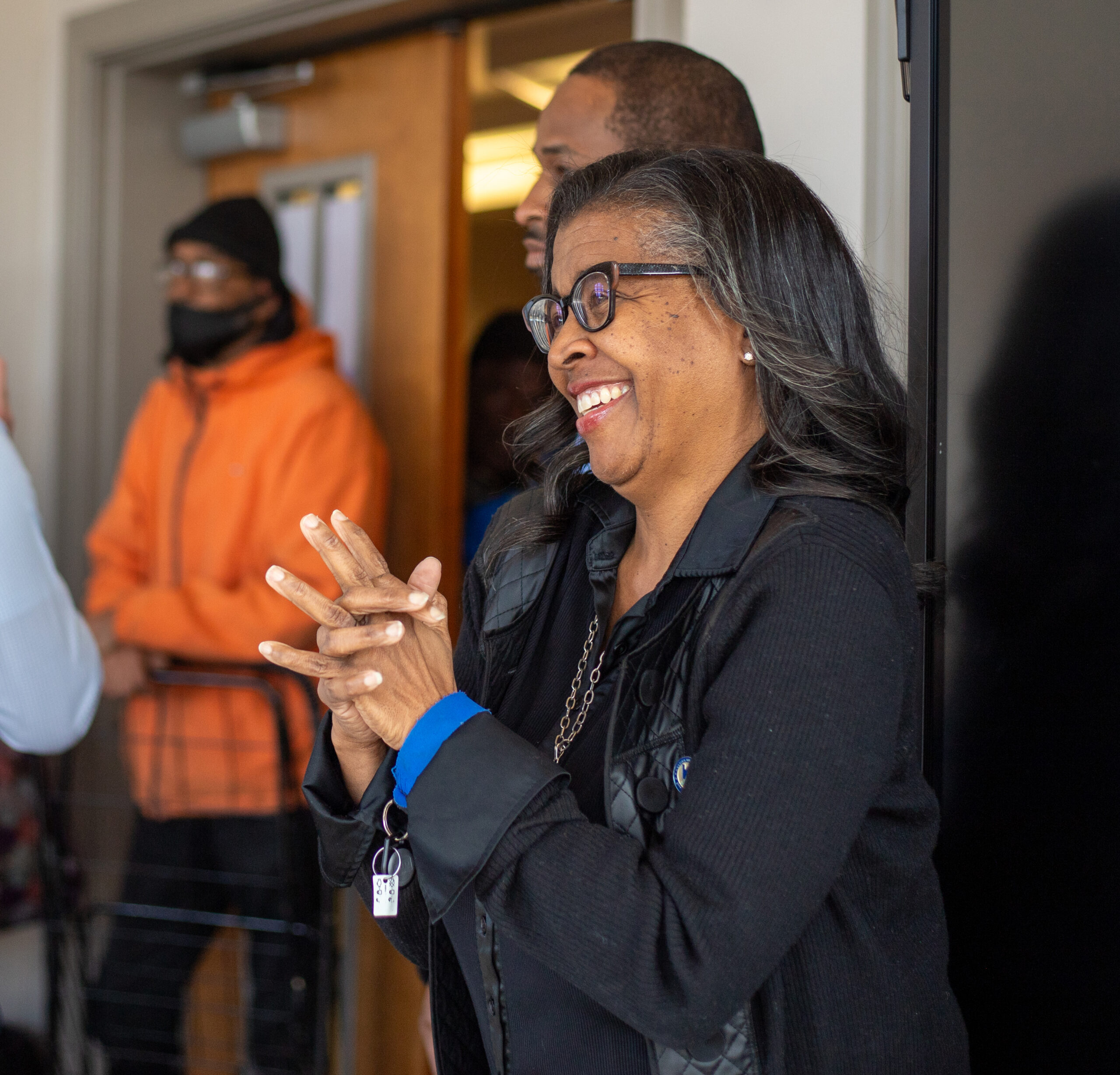
This success underscores 412 Food Rescue’s commitment to addressing immediate food needs while also building long-term solutions that promote dignity and empowerment. Through partnerships with local organizations and a robust volunteer network, the organization continues to learn from and work alongside communities to advance equity and justice through food access.
Supporting Our Community Amidst Threats to Social Services
Once again, we’re entering a time when access to adequate food and basic needs is being debated. Federal funding for breakfast and lunch programs, SNAP benefits and more are on the chopping block. It’s appropriate that we turn to this history of Black Americans for guidance and inspiration. Food is a human right and food access is non-negotiable. But when we cannot rely on the social safety net, when some Americans are afraid to access services because of their perceived immigration status or over concerns for their physical safety, we have to pull together as a community to ensure that everyone has access.
Our goal is to get food to people where they already are—not just at food pantries, but in community spaces where they feel safe. By collaborating with non-traditional food distribution partners—like community centers, libraries, clinics, and housing facilities—412 Food Rescue is expanding food access options and breaking down barriers that keep people from getting the nourishment they need.
Equity and access are embedded into the daily work of food recovery and something we try to continually grow, exemplified by a recent update to the technology platform that runs our app: Suggested Nonprofits. This powerful tool ensures surplus food goes first to organizations serving communities facing the highest barriers to access, making food rescue smarter, fairer, and more efficient.
Read how we’re harnessing data for fairer food distribution →
Our ongoing commitment to growing equity and food access is a reflection of the enduring lessons learned from Black communities that have long demonstrated the power of collective care.
How to Help
As we celebrate Black History Month, let us honor this legacy by recognizing food security as a fundamental right and a first step toward systemic change. Advocacy, community-based solutions, and policy reform are all essential tools in this fight.
Start a food rescue in your community – Interested in starting a food rescue in your community? Check the Food Rescue Hero guide “How to Start a Food Rescue” – plus our brand new webinar series!
Volunteer at your local community organization or complete food rescues – Many organizations depend on volunteers to sort donations, package meals, and deliver food. Even a few hours a month can make a significant difference! Find your local Food Rescue Hero partner →
Donate money or food to local food assistance organizations – Every dollar helps! Your financial contribution helps ensure the logistics of food distribution to marginalized communities remains reliable for the individuals who rely on it, and even helps it grow to be more impactful and meet more needs.
Call your local representatives – Advocate for policies that address food insecurity and support equitable access to nutritious food. Urge policymakers to strengthen food assistance programs and invest in community food systems.
Spread the word – Share information about food insecurity and how it affects marginalized communities. Raising awareness encourages others to take action and support efforts to ensure food equity.
You are the network.
You are the reason food rescue is possible.
Because of you, food reaches the people who need it, where they need it, with dignity and without fear. And together, we can make sure everyone can receive the help they need, today and every day.
For further reading, ReFed has an article with a lot of great resources on Black Food History.

Want to grow impact in your community?
Our model merges technology, civic engagement, and public-private partnerships to introduce a new transport and distribution model that transforms surplus food into a resource and changes the way we approach food access.
And we are seeing sustainable, scalable and measurable impact.


